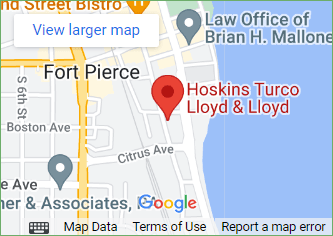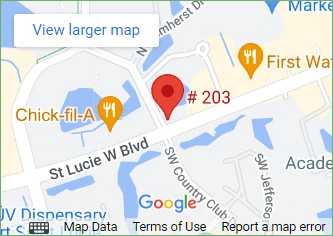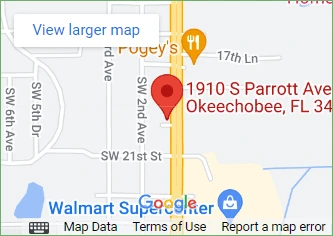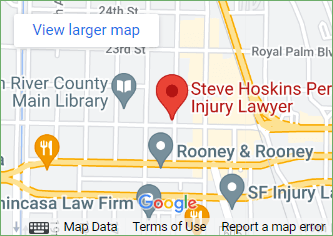Auto Accident Settlement
Boating Accident FAQ
With over 1,300 miles of beautiful, sunny coastline, it’s not too surprising that Florida is the busiest state when it comes to recreational boating activity. Unfortunately, with this abundance of on-water movement comes a higher risk of a boating accident.
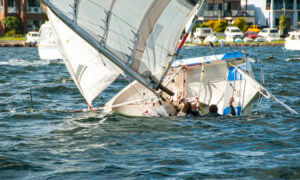
We hope that this article finds you before you’re faced with the event of a boating accident, but if you or a loved one has been injured in Florida waters, the information below may be more relevant than ever. You may be faced with serious injuries, massive amounts of property damage, ongoing pain and suffering, and a downturn in ability at work, meaning lost wages. Once your health has been properly addressed by a medical professional, acquiring the help of a Florida boat accident attorney is a great way to help you cover all your bases when seeking restitution.
What to do after a Florida boating accident?
Don’t Hesitate to Call Mayday and Request Support When Needed
Some boat accidents are so serious that they require assistance from local, state, or federal authorities. If the vessel is sinking or is on fire or if there has been a serious injury or probable death, the vessel operator can put out a distress call using the radio.
Turn the VHF to channel 16, or 2182 kHz MF/SSB. Start the distress call by repeating “Mayday” three times followed by as much information about your vessel and location as possible. Use latitude and longitude signals or your bearing compared to navigational landmarks. The Coast Guard, park services, local law enforcement, or a good samaritan may arrive to provide assistance and transport for the injured.
Seek Medical Advice and Treatment
The first thing to do after a Florida boating accident is getting a diagnosis and medical treatment from a trusted health professional. Early analysis and treatment for any injuries not only boosts your chance of recovering fully but is also key to ensuring all your damages are properly accounted for.
Boat accidents tend to be extremely expensive, so it’s important to remain diligent with keeping track of injuries, property damage, and related expenses.
When is a boating accident report required?
According to federal regulations, a boating accident requires a written report in the following circumstances:
- A person dies
- A person requires medical treatment beyond first aid
- Damage to vessels and other property totals $2,000 or more or there is a complete loss of any vessel
- A person disappears from the vessel
In the case of injury or death, an accident must be submitted to the authorities within 48 hours of the accident. If no one is injured or killed and only property damage or loss needs to be reported, the required report must be submitted within 10 days of the accident. Outside of very minor boating incidents, the chance of an accident exceeding the $2,000 minimum is quite high, so filing a report is likely to be required in most cases.
Do I need a boating accident attorney?
Unless your accident is incredibly minor, involving 0 injuries and negligible property damage, you should seek the help of a Florida boating accident attorney. The laws involving property damage and injury on the water are extremely complex, and working with a seasoned attorney can help you recover the maximum possible for any damages you and your passengers suffered. An boat accident attorney can also determine who is liable in a boating accident for you as well.
Boat Safety Tips
Accidents in Florida waters can often be attributed to a lapse in safety precautions. Here are some important safety tips to keep in mind:
Don’t Drink or Do Drugs Before or During Boat Operation
The same rules as on the open road apply on the open seas. Being inebriated while operating a vehicle is illegal, and 19% of all US boating fatalities involved alcohol consumption according to the Coast Guard.
Avoid Distractions
When actively operating a water vessel, put the phone down, and focus on the task at hand. Collisions with other vessels and stationary objects are two of the most common kinds of boating accidents. Paying attention to your surroundings, especially while actually on the move, is key to avoiding these kinds of accidents.
Wear a Life Jacket
According to the Coast Guard’s 2019 report on recreational boating, “where the cause of death was known, 79% of fatal boating accident victims drowned. Of those drowning victims with reported life jacket usage, 86% were not wearing a lifejacket.” Ensure all passengers on your boat are wearing a properly fitted life jacket before hitting the water, as it’s the best protection against drowning in the case of an accident.
Take a Boating Safety Class
If you don’t regularly operate a boat in Florida waters, be sure to take a safety class in your local area. Even if you’re completely confident with your boating abilities, regulations and recommendations can change over time and it can only benefit you to take a refresher course.
Be prepared
Be sure to have first aid supplies onboard, schedule a free safety check for your vessel before embarking, install a carbon monoxide detector on your boat, and prepare a float plan for the day of your journey. Preparation is a great way to reduce your risk once you’re out on the open water, so don’t skimp on this part!
Exercise Caution on Personal Watercraft
Jet skis or Wave Runners are some of the most popular methods of enjoying Florida’s waters. While all of the boating safety tips above apply to smaller watercraft, there are some extra considerations to keep in mind while enjoying these powerful personal watercraft.
- Wear neoprene shorts or wetsuits to protect with impact with the water
- Pay attention to the weight capacity of your vessel
- Read any manuals and safety precautions that come with the machine
- Familiarize yourself will all required safety equipment, like the emergency shut off lanyard and fire extinguisher
If You’ve Been in a Florida Boating Accident, Get Help From an Experienced Attorney
Boat owners, operators, and employers who send their workers out on coastal waters all have a responsibility to abide by Florida boating regulations, and it can be difficult to prove who was negligent out on the open waters. If you’ve been involved in a boating accident, seeking the help of a seasoned local boating accident attorney can significantly improve your chances of recovering fully.
At Hoskins, Turco, Lloyd & Lloyd, we will work tirelessly as we fight to hold negligent parties accountable and recover the maximum for your personal injuries and property damages. We have offices in some of the most popular boating destinations along the Florida Treasure Coast, so you have convenient access to our exceptional legal resources. Give us a call at (866) 460-1990 or contact us online to get started on a free consultation today.
Verdicts and Settlements
$1.2 Million
$1.6 Million
Wrongful Death Settlement
$11.1 Million
Settlement for motorcycle accident
Locations
Ft. Pierce, FL 34950
Suite 203, Port St. Lucie, FL 34986
Okeechobee, FL 34974
Vero Beach, FL 32960
The hiring of a lawyer is an important decision that should not be based solely upon advertisements. Before you decide, ask us to send you free written information about our qualifications and experience.
We are a debt relief agency and attorneys. We help people file for Bankruptcy relief under the Bankruptcy Code. The hiring of a lawyer is an important decision that should not be based solely upon advertisements. Before you decide, ask us to send you free information about our qualifications and experience.
Hoskins, Turco, Lloyd & Lloyd © 2020 All Rights Reserved. Terms of Use and Privacy Policy
This site is protected by reCAPTCHA and the Google Privacy Policy and Terms of Service apply.
